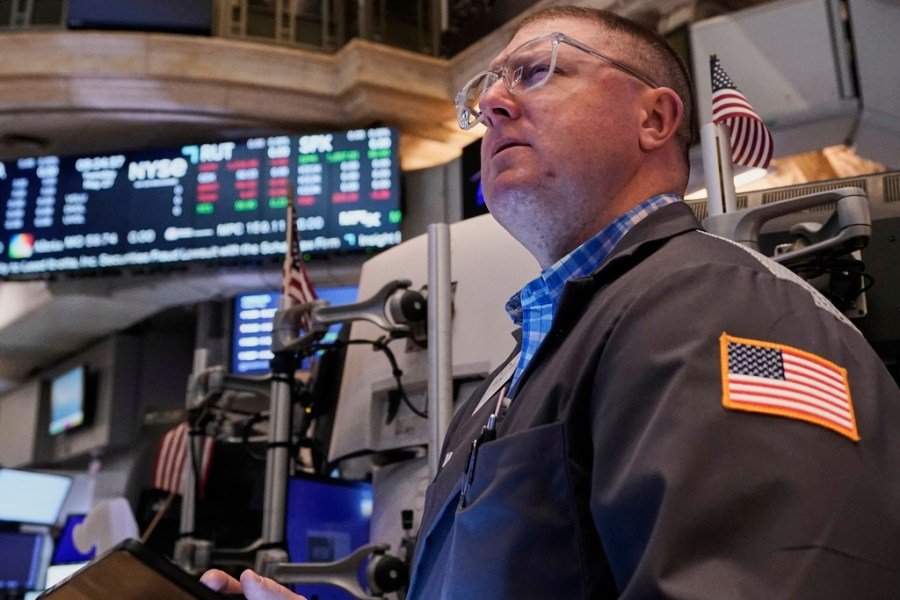
A group of Senate Democrats recently announced they will re-introduce a bill to ban stock trading by members of Congress and their families. The renewed call comes about a month after members of Congress, including Rep. Marjorie Taylor Greene (R-Ga.), disclosed large stock purchases just before the Trump administration announced a 90-day pause on tariffs when the market jumped 10 percent.
As many know, this problem occurs on both sides of the aisle. During the COVID-19 pandemic, then-House Speaker Nancy Pelosi (D-Calif.) was scrutinized for timely trades made by her husband, just before major federal aid packages and lockdowns were announced.
While accusations of insider trading by members of Congress are a familiar story, what we haven’t known, until now, is what exactly these beliefs do to public trust in the federal government as well as how it impacts the public’s willingness to follow the laws passed by these same members of Congress.
Alongside psychologist Tage Rai, I ran a series of experiments with over 1,000 Americans to find out. We found that when people learn about members of Congress making unusual gains from stock trades, it makes them lose faith in Congress. They see lawmakers as more corrupt, less trustworthy, and less legitimate. And most critically, they feel less obligated to follow federal laws themselves.
Interestingly, we found that this isn’t just about resentment over politicians making money. In a follow-up experiment, we shared information with our participants on a fictional lawmaker who lost money on stock trades. The results were the same. It didn’t matter if members of Congress made or lost money, they didn’t like the idea that elected officials were trading in the market they govern.
The sense of unfairness cuts across party lines, which may be why fixing it is one of the few issues with rare bipartisan support, not just from voters, but from lawmakers themselves. In addition to Democratic members of Congress like Sens. Jon Ossoff (D-Ga.), Mark Kelly (D-Ariz.), and Elizabeth Warren (D-Mass.) and Rep. Alexandria Ocasio-Cortez of New York; and Republicans like Rep. Chip Roy (R-Texas), Sen. Josh Hawley (R-Mo.), and even Speaker Mike Johnson (R-La.) have all backed reforms.
Among ordinary Americans, more than 86 percent of both Democrats and Republicans support banning stock trading by members of Congress.
We already have laws on the books. The STOCK Act requires members of Congress to disclose their trades, but enforcement is weak and penalties are trivial. The most recent bill from Ossoff and Kelly advocates for stronger measures requiring members of Congress to place their assets and their family’s assets in blind trusts, with others responsible for managing their portfolios.
In psychology, there’s a concept called a credibility-enhancing display — a costly action that signals someone truly believes in what he or she is doing. For example, some religious people engage in rituals like fasting. Some environmental activists forgo air travel. Such acts demonstrate genuine commitment and inspire others in the service of their cause. If politicians voluntarily regulate themselves, it could send that same kind of signal. Banning insider trading would do more than prevent corruption: it would show the American public that their lawmakers are willing to incur personal costs to serve the public good with integrity.
Social scientists have long asked why some countries flourish while others stagnate. Last year, economists Daron Acemoglu and Simon Johnson, along with political scientist James Robinson, won the Nobel Prize for showing that the answer lies in political institutions — whether they are inclusive and accountable, or extractive and self-serving.
For a long time, researchers have held the U.S. as a global model: a country that was prosperous because of strong and respected institutions. Corruption was something we studied in other countries.
That reality has been fading. Banning congressional stock trading won’t fix everything, but it’s a rare bipartisan opportunity to restore public trust and to prove that the rules still apply to those in power.
Raihan Alam is a doctoral student in management at the University of California-San Diego Rady School of Management. He is first author of the paper “Knowledge of Politician Stock Trading Reduces Congressional Legitimacy and Compliance with the Law,” published in Proceedings of the National Academy of Sciences.


